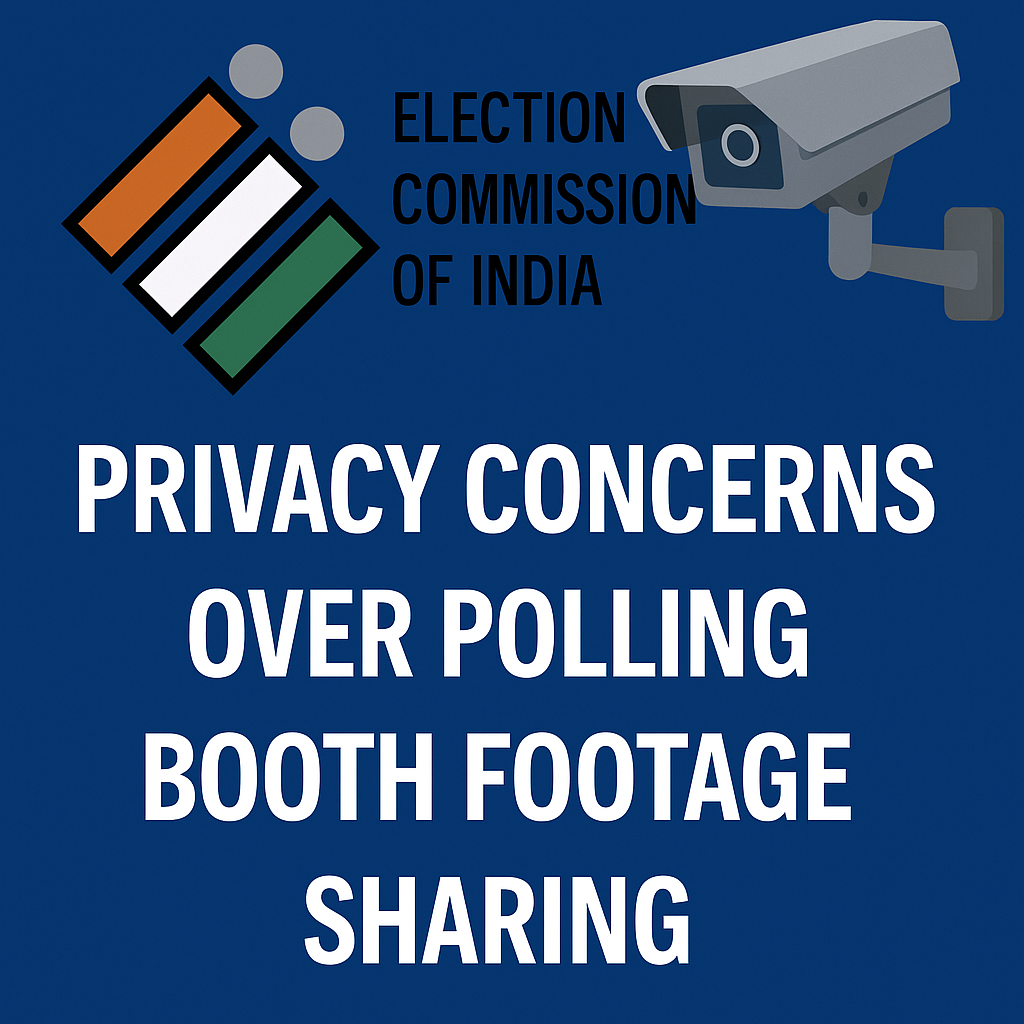
The Election Commission of India (ECI) has tightened its policy on the sharing of polling station video recordings, warning that such footage, if made widely accessible, could breach the privacy of voters. The move comes amid growing debates over election transparency and data misuse, especially following the 2024 Maharashtra assembly elections.
In a circular issued on June 18, the ECI instructed all state and Union Territory election offices that any video footage recorded during polling after May 30, 2025, including that from CCTVs and webcams, should not be publicly shared or scrutinized without judicial oversight. Instead, such recordings will only be disclosed to the High Court and only in the event of an official election petition.
According to officials, videos of polling are to be submitted in their original form exclusively to the court. They cannot be released or used for any other purpose unless directed by the court. This restriction aims to prevent the identification of individual voters, protect their secrecy, and shield them from potential misuse by anti-social elements.
The circular further clarified that “maintaining the privacy and secrecy of the elector is non-negotiable,” adding that the Election Commission has always prioritized this principle, supported by constitutional and legal provisions.
The issue gained traction after opposition parties, especially the Congress, demanded that CCTV footage from polling stations in Maharashtra be made public. Congress leader Rahul Gandhi took to social media platform X, raising doubts about the disappearance of key election data. "Election photos and videos? Now they will be deleted in 45 days, not 1 year," he alleged, suggesting the move was an attempt to suppress evidence.
However, senior EC officials dismissed these claims, saying that opposition narratives are misleading. "What is viewed as suppression is actually aimed at securing the democratic process and protecting voter privacy," said an official on condition of anonymity.
The ECI also referred to Section 128 of the Representation of the People Act, 1951, which criminalizes any violation of voter secrecy. Offenders may face up to three months’ imprisonment or a fine, or both. Officials noted that disclosing or misusing polling footage could expose voters to surveillance, profiling, or pressure—especially in sensitive or politically charged environments.
The revised rule aligns with the government’s earlier decision in December 2023 to limit public access to electronic records such as surveillance footage and candidate video recordings. Following ECI recommendations, the Union Law Ministry had amended Rule 93 of the Conduct of Election Rules, 1961, restricting what documents may be subject to public inspection.
Under the current guidelines, footage from polling booths can only be viewed after 45 days of the result declaration and only if a court has admitted a related election petition. The EC has urged officials to follow these protocols strictly to prevent unauthorized sharing.
This policy update represents the Commission’s effort to strike a balance between ensuring transparency and safeguarding the personal data of voters. In a climate where the integrity of the electoral process is often questioned, the EC’s stance reaffirms its commitment to both legal adherence and voter protection.
As political debates continue, the focus now shifts to how parties respond to these norms and whether they choose to challenge them legally. For now, the ECI stands firm, insisting that voter privacy must not be sacrificed for political theatrics.





















